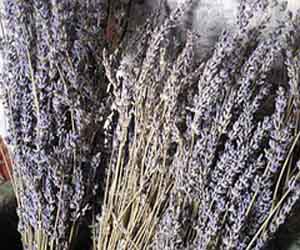


Cultivating A Fulfilling Life

In our fast-paced and often chaotic world, mindful living has become a guiding principle for those seeking a more meaningful and balanced life. At the heart of this mindfulness journey is gratitude, a transformative practice that encourages us to appreciate the present moment, fostering contentment, and enhancing overall well-being.
Mindful living through gratitude is about approaching life with a heightened sense of awareness, focusing on the beauty and blessings that surround us daily. It is the art of being present, embracing each moment with a sense of reverence and thankfulness. Here's how practicing gratitude can help us lead a more mindful and fulfilling life.
Embracing The Present Moment: Mindfulness teaches us to be fully present in each moment. Gratitude complements this by encouraging us to recognize and appreciate the small yet precious details of life - the warmth of the sun on our skin, the laughter of loved ones, or the taste of a delicious meal. By savoring these moments, we become more attuned to the richness of the present.
Shifting Perspective: Gratitude encourages us to shift our perspective from what we lack to what we have. This change in mindset can be a powerful tool in mindfulness. When we focus on the positive aspects of our lives, we reduce stress and anxiety, creating a mental space where we can truly live in the moment.
Enhancing Emotional Well-Being: Regularly practicing gratitude has been linked to improved emotional well-being. It helps regulate emotions, reduce negative feelings, and increase overall happiness. In a state of mindfulness, we are better equipped to process our emotions and respond to them with greater clarity and balance.
Strengthening Relationships: Gratitude is not limited to recognizing the beauty in our surroundings but also extends to the people in our lives. Expressing gratitude towards friends, family, and colleagues fosters deeper connections and nourishes the bonds we share. Mindfully acknowledging the importance of these relationships adds richness to our journey.
Cultivating Resilience: Mindfulness and gratitude together can be powerful tools for building resilience. When we encounter challenges and setbacks, the practice of gratitude enables us to find silver linings even in adversity. This positive outlook can help us bounce back from life's hurdles with greater strength and determination.
Living With Purpose: Mindful living through gratitude propels us to live with intention. As we become more aware of the beauty in our lives, we are inspired to align our actions and choices with our values and aspirations, leading to a more purposeful and fulfilling existence.
To integrate mindful living through gratitude into your daily life, consider keeping a gratitude journal. Each day, take a moment to reflect on the things you are thankful for. Be specific and genuine in your acknowledgments, and gradually, you'll find your perspective shifting towards the positive aspects of your life.
Mindful living through gratitude offers a path to a more fulfilling and content life. By appreciating the present moment, shifting your perspective, and nurturing your emotional well-being, you can find greater happiness and resilience. This practice encourages you to savor the beauty in the ordinary, strengthening relationships, and helping you live with a sense of purpose. In a world that often rushes by, mindful living through gratitude allows us to pause and appreciate the richness of our lives.
Fueling Performance And Recovery
 Quinoa: Known as the "mother of all grains," quinoa is a complete protein source. It contains all nine essential amino acids, making it an ideal choice for muscle recovery and growth. Quinoa is also rich in complex carbohydrates, providing sustained energy for workouts.
Quinoa: Known as the "mother of all grains," quinoa is a complete protein source. It contains all nine essential amino acids, making it an ideal choice for muscle recovery and growth. Quinoa is also rich in complex carbohydrates, providing sustained energy for workouts.
Berries: Blueberries, strawberries, and raspberries are packed with antioxidants, which combat oxidative stress induced by exercise. The antioxidants can help reduce muscle soreness and inflammation, accelerating recovery.
Salmon: Fatty fish like salmon are abundant in omega-3 fatty acids, which have anti-inflammatory properties. Omega-3s can reduce exercise-induced muscle damage and promote joint health, critical for athletes and fitness enthusiasts.
Spinach: Spinach is a leafy green powerhouse, offering a wide range of vitamins and minerals, including iron, which is essential for oxygen transport in the body. This is particularly important for endurance athletes.
Chia Seeds: Chia seeds are high in fiber, healthy fats, and plant-based protein. They provide long-lasting energy and can help maintain hydration due to their water-absorbing properties.
Bananas: These fruits are packed with potassium, an electrolyte crucial for muscle and nerve function. Eating a banana can help prevent cramps during or after intense workouts.
Sweet Potatoes: Sweet potatoes are a complex carbohydrate source that provides a sustained release of energy. They are rich in vitamins and minerals that support muscle recovery.
Nurturing The Soul
 The Essence Of Emotional Well-Being
The Essence Of Emotional Well-Being
Emotional well-being encompasses the ability to understand, express, and manage our emotions effectively. It's about finding a balance that allows us to navigate life's challenges with resilience, experiencing joy, and finding solace in moments of sorrow. Essential oils, through their natural aromatic compounds, can become powerful allies in this emotional journey.
Aromatherapy's Emotional Arsenal
Aromatherapy, the practice of using essential oils for therapeutic purposes, recognizes the intimate connection between our sense of smell and the limbic system, which governs our emotions. Certain essential oils have distinct properties that can help with various emotional states.
Lavender: Often hailed as the universal oil, lavender is known for its calming and soothing effects. It can help reduce anxiety, stress, and promote relaxation.
Citrus Oils (e.g., Orange, Lemon, And Grapefruit): These oils are uplifting and refreshing, making them ideal for boosting mood and alleviating feelings of sadness or melancholy.
A Path To Optimal Health
 Macronutrients: These include carbohydrates, proteins, and fats, which provide the energy required for daily activities and bodily functions.
Macronutrients: These include carbohydrates, proteins, and fats, which provide the energy required for daily activities and bodily functions.
Micronutrients: Vitamins and minerals, like vitamin C, calcium, and iron, are essential for various physiological processes.
Water: Adequate hydration is a critical aspect of meeting dietary needs. It is required for digestion, temperature regulation, and overall health.
Fiber: Dietary fiber, found in fruits, vegetables, and whole grains, supports digestive health and can help prevent chronic diseases.
Phytonutrients: These are plant compounds found in colorful fruits and vegetables, known for their health-promoting properties.
3. Tailoring Your Diet
To meet your specific dietary needs, it's essential to tailor your diet to your individual circumstances. This involves considering factors like age, gender, activity level, and any health conditions or dietary restrictions you may have. For instance, an athlete may require more protein to support muscle recovery and growth, while someone with a gluten intolerance will need to avoid gluten-containing foods.
4. Dietary Needs And Special Populations
Certain populations have unique dietary needs that should be taken into account:
Infants And children: Growing bodies require a steady supply of nutrients to support proper development.
Pregnant And Lactating Women: Additional nutrients, such as folic acid and iron, are essential for the health of both the mother and the baby.
Seniors: As people age, they may require more calcium and vitamin D for bone health, along with other nutrients for overall well-being.






The Power Of Collective Strength
 Social Support: Community provides a valuable safety net of social support. Friends, family, and neighbors can offer emotional and practical assistance in times of need, providing a sense of belonging and care.
Social Support: Community provides a valuable safety net of social support. Friends, family, and neighbors can offer emotional and practical assistance in times of need, providing a sense of belonging and care.
Sense Of Belonging: Feeling like a part of a community fosters a sense of belonging. This connection can be a powerful source of motivation and hope, promoting resilience in the face of adversity.
Shared Experiences: In a community, individuals often share similar experiences and challenges. This commonality creates a strong bond, as members can relate to each other's struggles and provide empathetic support.
Collective Problem-Solving: Communities are often better equipped to problem-solve and adapt to change collectively. Members can pool resources and ideas to find solutions to shared challenges.
Strategies For Building Resilience Through Community
Connect With Neighbors: Get to know your neighbors and build a sense of community in your local area. This support network can be invaluable during emergencies and everyday life.
Participate In Community Activities: Engage in community events, clubs, or organizations. These activities not only foster a sense of belonging but also provide opportunities to develop new skills and build social connections.
Online Communities: In today's digital age, online communities can be just as powerful as physical ones. Join online support groups, forums, or social networks where you can connect with like-minded individuals facing similar challenges.
Support Local Businesses: Strengthen your local community by supporting small businesses and participating in community initiatives. This helps create a resilient local economy and fosters a sense of unity.
Nurturing The Body, Mind, And Spirit
 Holistic healing begins with the physical body, and essential plant extracts play a significant role in this aspect of well-being. Oils such as lavender, tea tree, and eucalyptus are well-known for their ability to address physical ailments. Lavender, with its soothing and calming properties, is often used to reduce stress and improve sleep quality. Eucalyptus and tea tree oil are celebrated for their effects on respiratory health and can alleviate symptoms of congestion and cough. These oils can be applied topically, inhaled, or incorporated into massages and baths to promote physical healing.
Holistic healing begins with the physical body, and essential plant extracts play a significant role in this aspect of well-being. Oils such as lavender, tea tree, and eucalyptus are well-known for their ability to address physical ailments. Lavender, with its soothing and calming properties, is often used to reduce stress and improve sleep quality. Eucalyptus and tea tree oil are celebrated for their effects on respiratory health and can alleviate symptoms of congestion and cough. These oils can be applied topically, inhaled, or incorporated into massages and baths to promote physical healing.
Emotional Balance
Emotional health is another essential component of holistic healing. Our emotional states are closely linked to our overall well-being, and essential oils can help restore emotional equilibrium. Aromas like citrus, rose, and chamomile are celebrated for their mood-enhancing and calming effects. Diffusing these oils or using them in relaxation rituals can significantly enhance emotional well-being and provide relief from the daily stresses of life.
Mental Clarity
Cognitive health is fundamental to our overall well-being, and essential plant extracts can help enhance mental clarity and reduce mental fatigue. Oils like peppermint and rosemary are known for their ability to improve cognitive function and concentration. Incorporating these oils into workspaces or using them during meditation practices can create an environment that supports mental well-being.
The Holistic Approach
Essential plant extracts offer a holistic approach to well-being, recognizing the interconnectedness of our physical, emotional, and mental states. By incorporating these natural remedies into daily rituals—whether through massages, baths, inhalation, or diffusion—individuals can embark on a holistic journey toward a more balanced and fulfilling life.